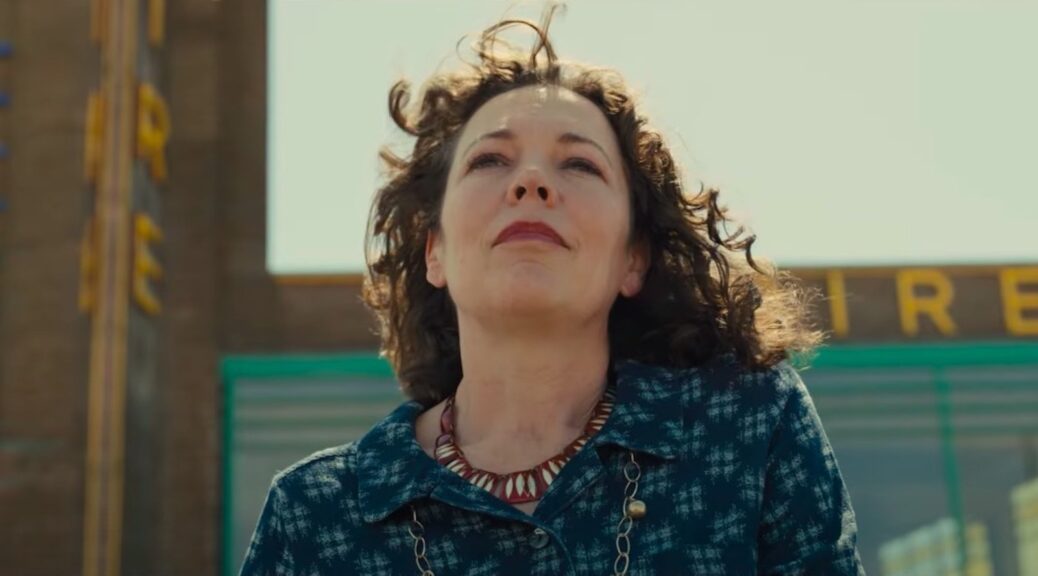Avatar: The Way of Water
by George Wolf
Week after week, really good films telling solid, compelling stories have been debuting in movie theaters and sinking like streaming-bound stones. What’s it gonna take for movies not named Top Gun to move people off the couch and back into the cinema?
James Cameron thinks the answer is to provide a sensory experience you just cannot get anywhere else. And on that front, Avatar: The Way of Water is a resounding success. See it on the IMAX screen, with the 3D glasses on your face, the thumping Dolby in your earholes and the high frame rate injected in your eyeballs and you’ll be transported to a theme park-like world of technical wonder.
The storytelling, on the other hand, is all wet.
Since we last left Jake Sully (Sam Worthington) over ten years ago, he and Neytiri (Zoe Saldana) have formed a happy family among the forest people of Pandora.
Their peace is shattered by a new invasion from the sky people, with a Na’vi clone of Colonel Quaritch (Stephen Lang) out to settle an old score. To keep the Na’vi from the fight, Jake and family flee to a village of the water people (including Kate Winslet and CCH Pounder) that’s led by Tonowari (Cliff Curtis).
But just as the forest family is bonding with their new water world, Quaritch and his troops come calling for a showdown.
You know who realized they shouldn’t run, that war would follow them and put others at risk? Neytiri did, the latest in a long line of smart women in James Cameron movies who no one listens to. That’s not the only throwback to Cameron films you may notice. Aliens, The Abyss, and Titanic are all over this film, and why not? Everybody else steals from them, why not Cameron?
The problem is not that he borrows from himself, but that he repeats himself. Scenes replay the same beats again and again. There’s so much wasted narrative space in this three-plus-hour film, and yet voiceover narration explains what that space could have been used to show.
And that’s the ironic weakness that consistently keeps Avatar 2 from resonating beyond surface-level amazement. Cameron (who also co-wrote the script) shows us so many wonderful delights, but precious few of them advance any investment in character, theme or narrative. It’s not that the ideals hitching a ride with the wizardry aren’t worthy, it’s just that they’re slapped together with so much obviousness and redundancy.
As the long-promised follow-up to the all-time box office champ, and carrying a budget in the hundreds of millions with several more sequels in the pipeline, there was already plenty riding on Cameron’s new vision. But a big return for TWOW could fast track a bittersweet bargain. The days of a rising tide at the multiplex lifting all boats seem to be fading fast, and one more huge wave might not leave room for anything on the big screen that’s less than pure spectacle.














